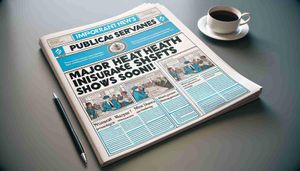The Brazilian business confidence has faced significant challenges going forward, marked by recent statistics indicating a steep decline across various economic sectors. According to the latest data, the confidence level dropped by 1.8 points to 94.8, the lowest since April 2022. This change signals the third consecutive month of falling confidence, illustrating growing unease among business leaders and economists alike.
Experts have noted the spread of this decline, affecting industry, services, commerce, and construction sectors. Specifically, the resultant pressures are felt not only through expectations but also within current perceptions, which had previously maintained positive resilience. Aloisio Campelo, superintendent of statistics at FGV IBRE, remarked on this concerning trend, highlighting how it denotes significant economic unease.
Recent comprehensive evaluations reveal troubling statistics across the board. For example, the confidence index for industrial entrepreneurs sank sharply, with only five out of 29 surveyed sectors showing any sign of confidence, showcasing the most widespread shortfall since June 2020. The study from the Portal da Indústria pointed out how the confidence dip transcended geographical boundaries, impacting businesses of all sizes—small, medium, and large.
Among the sectors analyzed, the industrial segment particularly stood out, as it registered declines across 24 of the 29 considered areas. The Index of Business Confidence (ICEI), which fluctuates between 0 and 100 points, indicates confidence when above 50. Currently, many sectors are struggling to stay above this threshold. For example, the industrial sector plunged from 50.3 to 48.5 points from December to January—falling below the confidence benchmark, reflecting adverse changes for industrial production.
Regional disparities have also been illuminated, with areas such as the North and Midwest experiencing transitions from confidence to lack thereof. Notably, experts pinpoint some resilience among businesses related to diverse products, which partially escaped the negative trends and managed to adjust back to positive levels.
José Antônio Valente, director of Trans Obra, emphasized the cascading effects of overbearing uncertainty on the construction sector, as diminished business assurance foretells restrained investments and strategic planning. He noted how even within these challenging contexts, there are operational adaptations available; for example, these could include opting for rental solutions over direct purchases of machinery. "Nesse contexto, a locação de ferramentas e o aluguel de betoneira ou outras máquinas e equipamentos para construção civil, se tornam soluções ainda mais relevantes para construtoras e empreiteiras, permitindo a continuidade das operações sem comprometer o capital de giro," said Valente, recognizing the practicality of such approaches.
Despite these unsettling insights, some moments of hope were expressed by government officials. Recently, Silvio Costa Filho, Brazil's Minister of Ports and Airports, articulated confidence about the economic policies introduced by the Minister of Finance, Fernando Haddad. At an event held on January 5, 2025, he stated his strong faith, saying, "Temos muita confiança em Fernando Haddad, que está fazendo o que precisa fazer, com equilíbrio das contas e retomada da meta." His remarks encapsulate the administration’s resolve to restore the investment climate, especially within the infrastructure sector, where forecasts predict R$18 billion in private investments for 2025—an increase of 32% compared to the previous year.
The burgeoning appetite for investment, particularly in the port sector, signals not only resilience but also potential recovery pathways for the overall economy. Costa Filho expressed optimism, asserting, "Vamos encerrar 2025 muito melhor do que começamos." These sentiments, paired with the analytical insights gained, offer substantial material to reflect upon as Brazil navigates these turbulent economic waters.
Overall, the situation remains complex. While the figures seem stark, internal adjustments within industries and forecasted governmental support might provide new avenues for recovery and growth. How leaders respond to this changing atmosphere may dictate the business environment as the country progresses throughout 2025.



